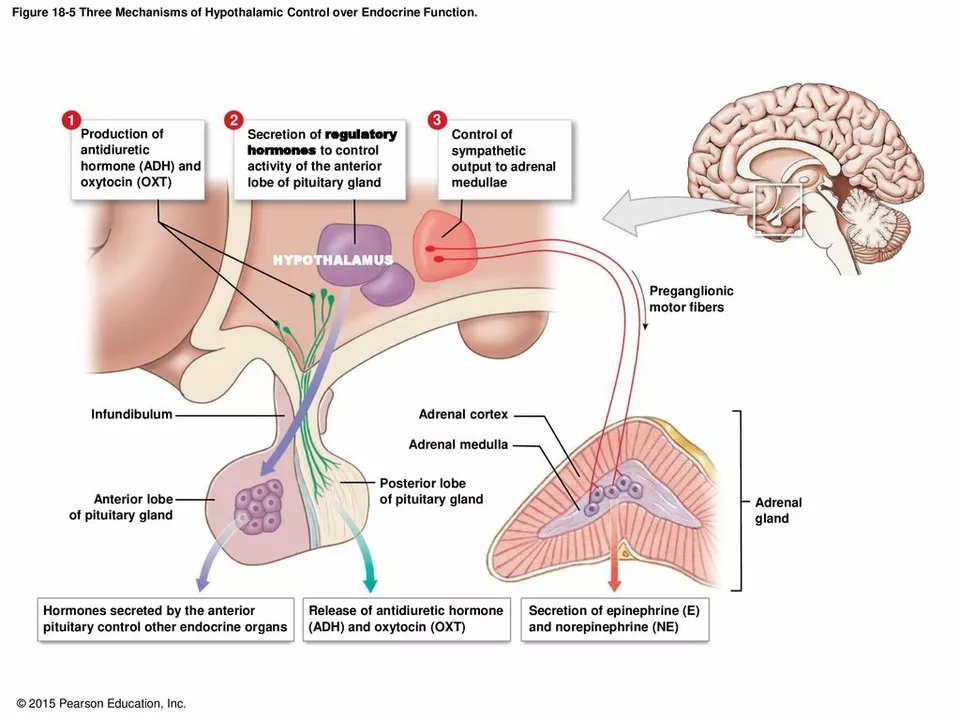June 2023 Health Insights – What We Covered
If you’re looking for a quick catch‑up on what we published in June, you’ve landed in the right spot. In just one month we dug into new ways to use tech with meds, highlighted an ancient plant making waves as a supplement, warned about side‑effects of a common drug, broke down a cancer therapy, gave practical tips for antibiotic‑related diarrhea, and explored how an antidepressant might sharpen your mind.
Medication Spotlights
First up, we talked about Clozapine in the digital age. Telemedicine and remote monitoring are now letting doctors check blood levels and adjust doses without you trekking to the clinic every week—especially handy during COVID‑19.
Next, we dived into Azathioprine and its link to Raynaud’s phenomenon. If you’re on this immune suppressant, be aware that cold‑induced finger pain might be a side‑effect worth discussing with your doctor.
The deep dive on Imatinib explained how the drug blocks tyrosine kinases, stopping cancer cells from growing unchecked. Knowing the mechanism helps you feel more confident about why it works for chronic myeloid leukemia and certain stomach cancers.
Lifestyle & Wellness Tips
Our supplement feature highlighted Peony. This plant, used in Chinese medicine for centuries, is packed with antioxidants that can ease inflammation, boost brain function, and even support weight management. It’s a simple addition to your daily routine—just check the dosage.
Antibiotic‑associated diarrhea got its own page too. The key takeaways? Keep probiotics handy, stay hydrated, and finish the full prescription. Over‑the‑counter remedies can ease symptoms, but always run it by a healthcare professional first.
Lastly, we explored Vortioxetine. Beyond lifting mood, early data suggests it may improve memory, attention, and processing speed for people with depression. If cognitive fog is a big issue for you, this could be worth asking your psychiatrist about.
That’s the June roundup in a nutshell—tech‑enhanced treatment, a promising plant supplement, safety alerts, and practical health tips. Bookmark this page to revisit any topic, and keep an eye on HeyDoctor.com for more easy‑to‑read medical insights.

- Jun 27, 2023
- Posted by Cillian Osterfield
Clozapine in the Digital Age: The Role of Telemedicine and Remote Monitoring in Treatment
In this digital era, telemedicine and remote monitoring are playing a crucial role in the treatment with Clozapine. They are enabling doctors to monitor patients' health and adjust dosages remotely, making treatment more effective and convenient. This has also minimized the risk and inconvenience of regular hospital visits, especially during these challenging times of the COVID-19 pandemic. Also, digital health technologies are ensuring adherence to treatment plans, leading to better health outcomes. It's fascinating to see how technology is revolutionizing the treatment of patients on Clozapine.

- Jun 26, 2023
- Posted by Cillian Osterfield
The Science Behind Peony: How This Dietary Supplement is Changing Lives
I recently came across a fascinating dietary supplement called Peony, and I just had to share the science behind it with you all. Peony has been used in traditional Chinese medicine for centuries, and now research is showing how it can improve our health. It's packed with antioxidants and anti-inflammatory properties, which help reduce pain and inflammation in the body. Additionally, studies have found that it can improve cognitive function and even help with weight management. I'm amazed at how this one little supplement can have such a significant impact on our lives and well-being.

- Jun 18, 2023
- Posted by Cillian Osterfield
Azathioprine and the Risk of Raynaud's Phenomenon: A Comprehensive Review
In a recent comprehensive review, I came across some intriguing findings on the relationship between Azathioprine and the risk of Raynaud's Phenomenon. For those who may not know, Azathioprine is an immunosuppressive medication often used in treating autoimmune diseases, while Raynaud's Phenomenon is a condition that causes the blood vessels in extremities to constrict when exposed to cold or stress. According to the review, there seems to be an association between the use of Azathioprine and an increased risk of developing Raynaud's Phenomenon. This is important information for both patients and healthcare providers to consider when weighing the benefits and risks of using Azathioprine. Further research is needed to better understand the underlying mechanisms and potential ways to mitigate this risk.

- Jun 12, 2023
- Posted by Cillian Osterfield
Understanding the mechanism of action of Imatinib
As a blogger, I've been researching the mechanism of action of Imatinib, a groundbreaking drug used to treat certain types of cancer. Imatinib works by specifically targeting and inhibiting the activity of abnormal proteins, known as tyrosine kinases, which are responsible for uncontrolled cell growth in cancers like chronic myeloid leukemia. By blocking these proteins, Imatinib is able to effectively stop the progression of cancerous cells. This targeted therapy has revolutionized cancer treatment, resulting in better outcomes and fewer side effects for patients. Understanding the mechanism of action of Imatinib helps us appreciate the advancements in cancer therapy and the potential for developing more targeted treatments in the future.

- Jun 2, 2023
- Posted by Cillian Osterfield
Diarrhea and Antibiotics: How to Prevent and Treat Antibiotic-Associated Diarrhea
Antibiotic-associated diarrhea is a common issue that many of us may experience when taking antibiotics. To prevent this, it's essential to maintain a healthy gut by consuming probiotics and staying well-hydrated. If diarrhea occurs, over-the-counter medications and oral rehydration solutions can help alleviate symptoms. Always consult a healthcare professional before taking any medication or supplements, and remember to complete your full course of antibiotics as prescribed. By following these steps, we can better manage and prevent the unwanted side effects of antibiotic treatment.

- Jun 1, 2023
- Posted by Cillian Osterfield
Vortioxetine and Cognitive Function: A Promising Connection
In my recent research, I came across some fascinating findings about the connection between Vortioxetine and cognitive function. Vortioxetine, an antidepressant medication, has shown promising results in improving cognitive performance in people with depression. Not only does it alleviate depressive symptoms, but it also seems to directly enhance memory, attention, and processing speed. These cognitive benefits could be a game-changer for those struggling with depression, as they may lead to better daily functioning and overall quality of life. I'm excited to follow this promising connection further and will keep you updated on any advancements in this area.
Categories
- Health and Wellness (72)
- Medications (69)
- Health and Medicine (28)
- Pharmacy Services (12)
- Mental Health (9)
- Health and Career (2)
- Medical Research (2)
- Business and Finance (2)
- Health Information (2)
Latest Posts
©2026 heydoctor.su. All rights reserved





